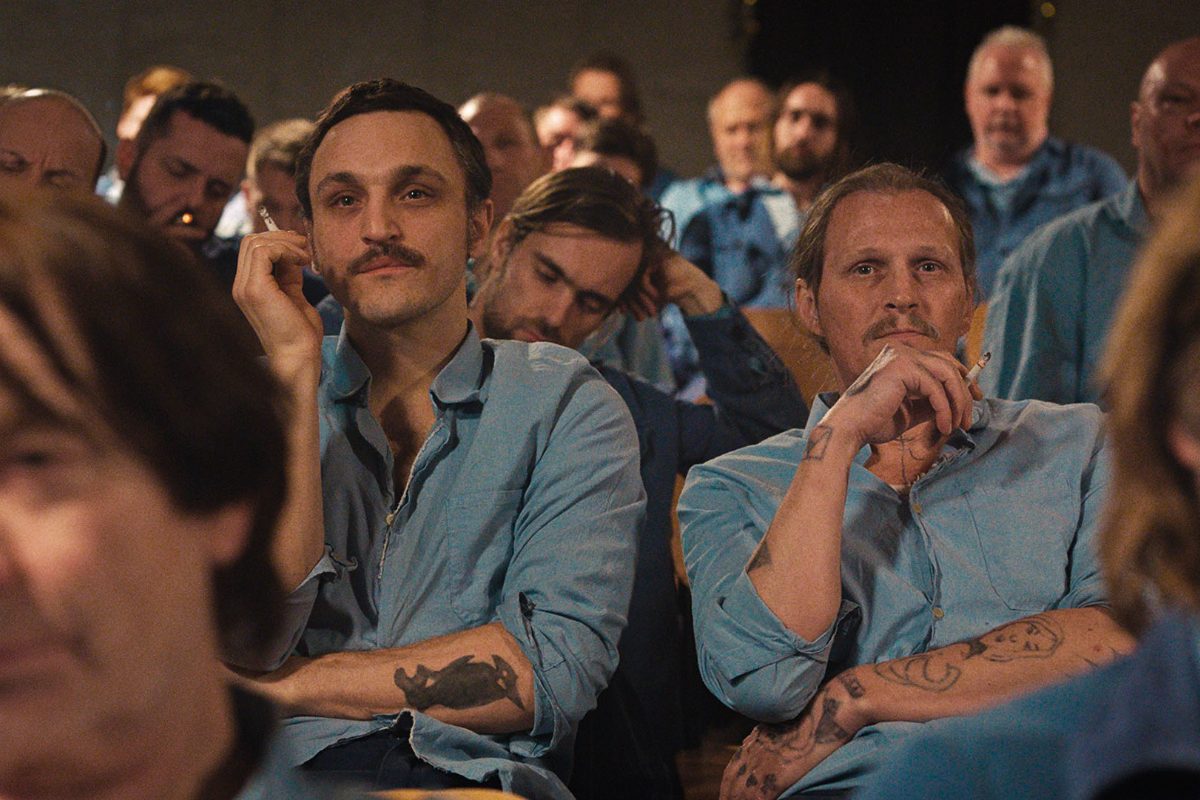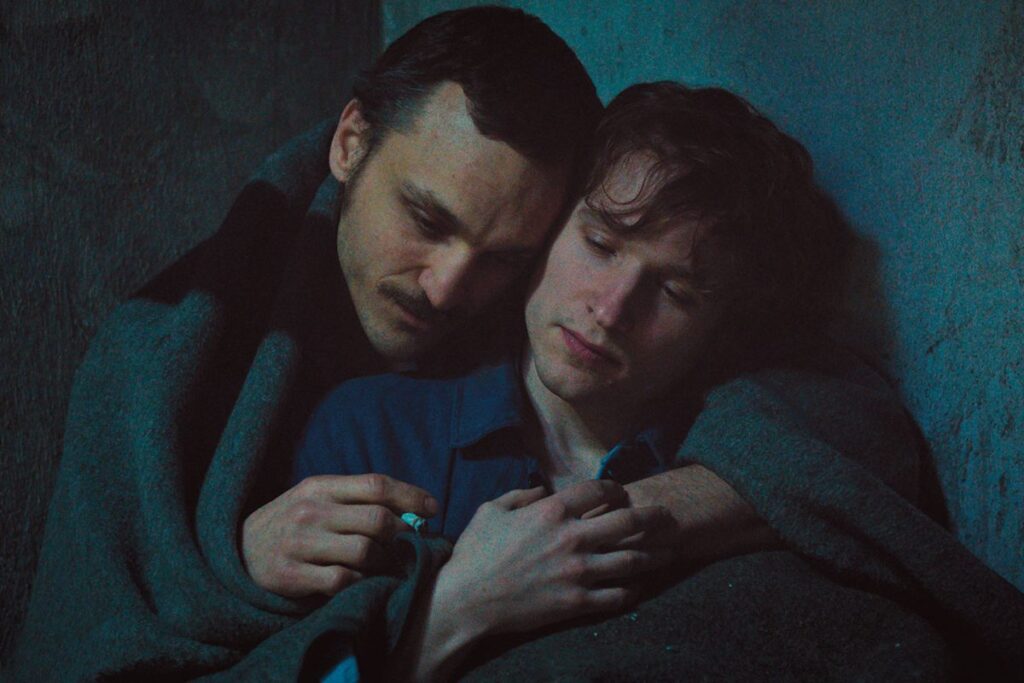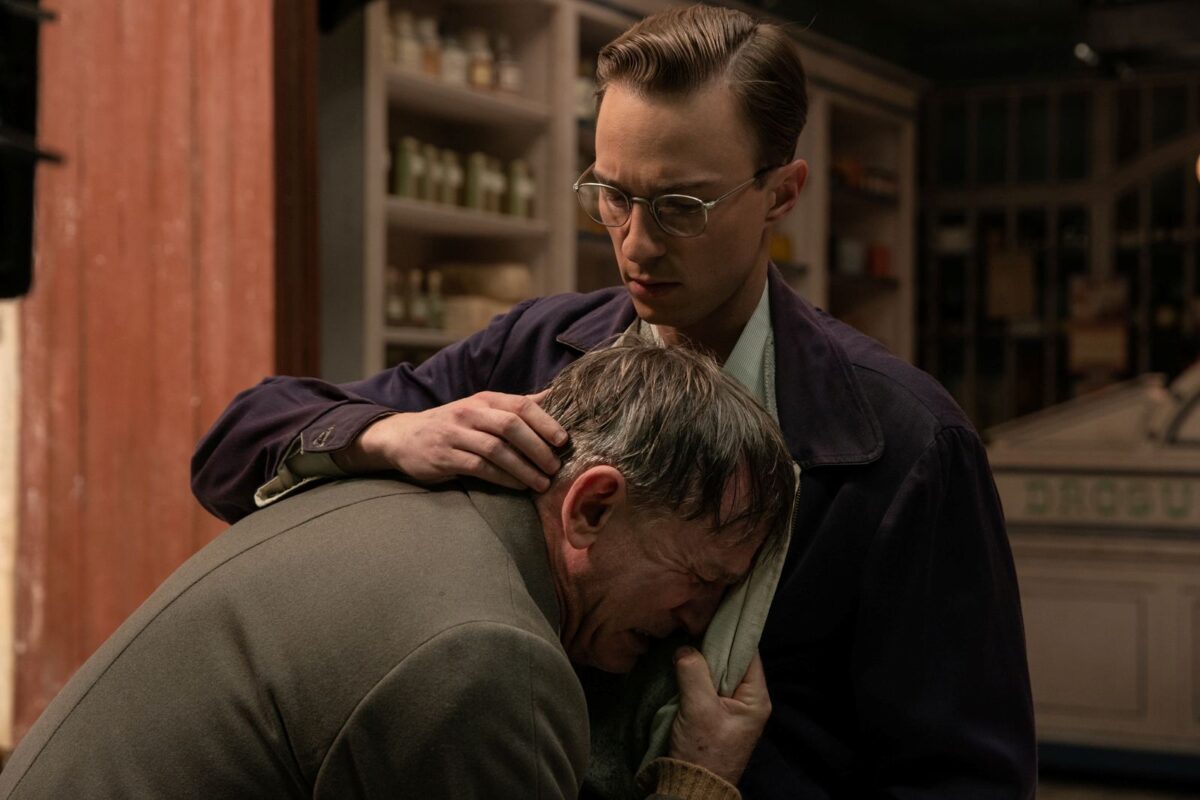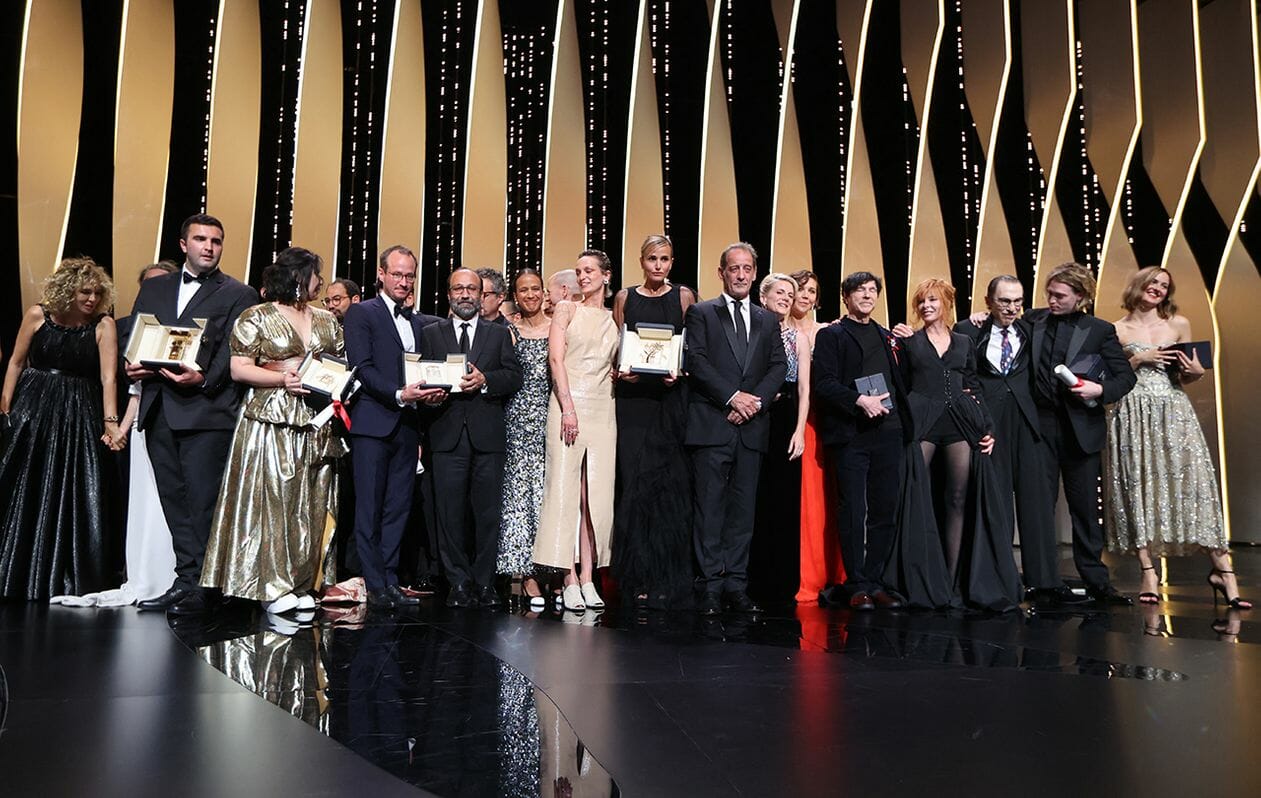
Great Freedom by Sebastian Meise | An Ode to Paradoxical Love
Year
Runtime
Director
Cinematographer
Production Designer
Format
Genre
Set in post-war West Germany, Great Freedom (Große Freiheit) is a stark queer drama, a story of persecution and resistance that reimagines the codes of the prison movie. Far from following the traditional arc of physical escape, the film turns its gaze inward, mapping the fierce survival of identity in the face of relentless oppression. Instead of reducing life to violence, the prison becomes a place where intimacy flickers tenaciously into being. In its understated intensity and focus on dignity over liberation, the film recalls Steve McQueen‘s Hunger (2008), where endurance becomes an act of defiance.
With Austrian director and screenwriter Sebastian Meise at the helm, Great Freedom brings together two icons of German-language cinema, Franz Rogowski and Georg Friedrich. The former, one of the rising stars of European cinema, gave perhaps his finest performance here, cementing his international reputation. The film won the Un Certain Regard Jury Prize and was nominated for the Queer Palm at the 74th Cannes Film Festival (2020).
- A Queer Eye on Post-War Injustice
- The Body in Rebellion: Desire as Defiance
- The Shadow of the Law
- Great Freedom: The Sovereignty of Desire
A Queer Eye on Post-War Injustice
Great Freedom offers an alternative perspective on post-war West Germany. For minority groups like the queer community, the transition between Nazism and liberalism didn’t represent a form of progress, as repression continued by different means. Paragraph 175, the law against homosexuality, remained in force and was applied even more strictly.
At this historical juncture, we first meet Hans (Franz Rogowski). Freshly liberated from a concentration camp, he finds himself immediately imprisoned for the same reason: an alleged criminal desire. His first cellmate, Viktor (Georg Friedrich), is a man with a mysterious past whose behavior toward him is explicitly homophobic. Viktor’s cynical personality initially seems to be a mere reflection of the current political climate until he suggests covering the identification number Hans has tattooed on his forearm. He shows Hans one of his tattoos, labeling it a youthful mistake he similarly covered. Its original shape is not easy to determine, nor is it explicitly mentioned – perhaps a penis?
It is a foundational scene that encapsulates their relationship’s further development. Beneath the surface, Hans and Viktor share a common suffering and a repressed identity that binds them together. The passage of time, marked not so much by dates as by an expert use of makeup, will be revealing. Thanks to the meticulous work of Heiko Schmidt, Roman Braunhofer, and Kerstin Gaecklein, time becomes substance, a burden of suffering inscribed in the faces and actions of the characters. Instead, space remains timeless, almost unchanging: a prison. Meise’s restrained directing style, with long, unhurried takes and subtle editing, reflects this sense of stagnation, making the dragging passage of time palpable, where even the most minor shifts feel momentous.
The Body in Rebellion: Desire as Defiance
Repression is always a form of discipline. Within the confines of the prison, in a small cell, the body is forced into a routine designed to “normalize” it. The system separates, surveils, and punishes, aiming to eradicate deviation. Hans’ body, in particular, must be purified, for they see it as tainted by an “inverted” desire. Therefore, they must straighten it by suppressing any of its expressions.
But desire is the engine of life. To suppress it is to kill one’s vitality. Hans knows this, even if he doesn’t verbalize it. Rogowski’s outstanding performance builds on this basic principle. His character walks into a minefield that he must cross to stay alive. If his desire gets caught, his sentence will be prolonged; if his desire remains unspoken, he will break, and his inner world will die. The balance is subtle, and so are his acting choices. Hans is an introspective character who doesn’t talk much. He always seems focused on his inwardness, as if he doesn’t want to lose track of his desires. At the same time, his gestures seem measured, suffocated by violence.
Though constantly exposed to the forces of oppression, Hans resists. Using every trick and subterfuge, he succeeds in re-enacting the law of his desire, reminding us that to resist a discriminatory system is to be non-compliant. And if Hans seems emaciated, his voice hesitant, it does not mean he is failing. His body remains in revolt, undisciplined.

The Shadow of the Law
Hans tries to form sentimental bonds with other prisoners, but something constantly interrupts these attempts. Lovers change, but the law that governs Hans’ relationships remains untouched. If Great Freedom were a conventional film, its ending would coincide with the abolition of Paragraph 175 or the main character’s suicide. But Sebastian Meise and Thomas Reider’s script is an absolute piece of bravura, capable of playing with the expectations it creates in the audience.
For two-thirds of the film, the script suggests a basic conception of freedom as freedom from persecution, emphasizing its legal aspect. Freedom is something that the law may or may not allow. However, if we look at the film’s title, we will notice that the adjective “great” precedes the substantive. This means we have at least two kinds of freedom: the basic, without adjectives, and the “great” one.
Great Freedom: The Sovereignty of Desire
For this reason, where a conventional film would end – with the attainment or loss of freedom in its most direct, political sense – Great Freedom takes a narrative turn that deepens and elevates its meaning to another level. At its core, it reimagines a central dilemma of Greek tragedy: what happens when the law of the soul – the unwritten law of desire – comes into conflict with the law of the city, the sanctioned rules of society? In its new version, the dilemma becomes more acute precisely where we expect its resolution. Towards the film’s end, the change in the law of the city – Paragraph 175 – doesn’t remove the obstacle but creates a new one precisely by causing Hans’ release. His love, paradoxically, goes beyond simple freedom, both literally and figuratively. It is still imprisoned, and its name is Victor. To follow the higher law of his desire, Hans must once again violate the law of the city despite its newfound righteousness. Great Freedom is essentially this: a romantic paradox.
Tag
Buy a ☕ for Hypercritic











